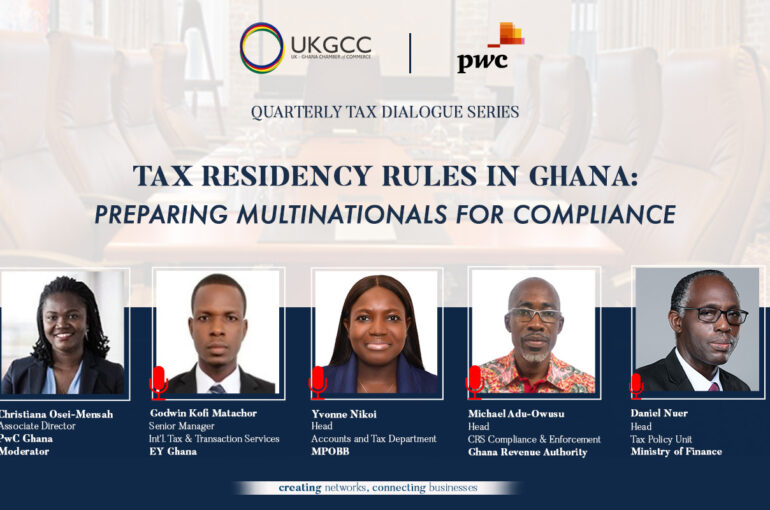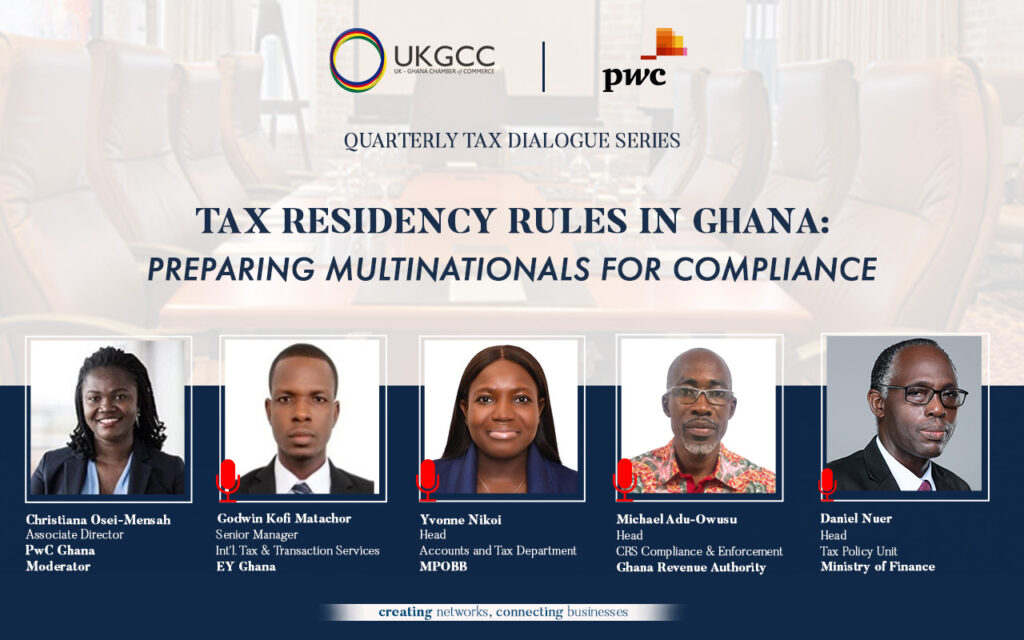Ministry of Finance to introduce 36 Double Taxation Agreements
Ministry of Finance to introduce 36 Double Taxation Agreements


Daniel Nuer, Head of the Tax Policy Unit at the Ministry of Finance, Ghana, has revealed that the Ministry of Finance is working to introduce about 36 more Double Taxation Agreements in addition to the 14 currently being enforced in Ghana.
According to Mr. Nuer, six of the agreements are pending Parliamentary ratification, five are still being negotiated (Hungary, Israel, UAE, Korea, and Egypt), while five more have been concluded but are yet to be signed.
Furthermore, while discussions have begun on three others, three more are being renegotiated.
“We are renegotiating them because although they were negotiated a while back – some more than 20 years ago, they were not ratified. Things have changed then, such as models which are now outmoded so we need to renegotiate them and bring them up to date “, he remarked during a UK-Ghana Chamber of Commerce (UKGCC) and PwC Ghana webinar on Tax Residency Rules in Ghana: Preparing Multinationals for Compliance”.
These treaties, once they come into force, will provide relief from double taxation, reduce tax rates based on negotiated agreements, provide exemptions to companies such as foreign airlines and shipping companies, and provide access to Mutual Agreement Procedure (MAP) for dispute resolution among others.
However, for a person to benefit from these treaty agreements, the person must be a resident of Ghana, a resident of the treaty partner, or both; be a beneficial owner of the income, and meet any limitation of Benefits (LOB) or Entitlement to Benefits provisions contained in the treaty, where applicable.
Defining Ghana’s Corporate Tax Residency Rules
Tax residency is an important aspect of taxation for both individuals and entities, determining which country has the right to tax individuals’ world-wide income.
In Ghana, the Income Tax Act 2015 (Act 896) imposes taxes on the total income of ‘Resident Person(s), including companies, from all sources (domestic and foreign).
According to Michael Adu-Owusu, the Head – CRS Compliance & Enforcement at Exchange of Information (EOI) at the Ghana Revenue Authority, a ‘company’ is one that is incorporated under the laws of Ghana (Companies Act 2019 (Act 992), with the management and control of its affairs being exercised in Ghana at any time during the year.
Through this arrangement, the income tax act establishes what is termed as a Permanent Establishment (PE). A PE is an entity separate from its owner and subject to tax under Section 1 in the same manner as a resident company, if the PE is a Ghanaian permanent establishment.
A Ghanaian PE is a place in Ghana where a non-resident person carries on business, or engages in a construction, assembly or installation project for ninety days or more.
Activities of a PE encompass when an owner of a company employs an individual resident in Ghana or makes a sale of trading stock of the same or a similar kind as those sold through a PE.
“So, the extent that this rule apples, the entity will be considered to be PE and the tax rule will apply accordingly’, Mr. Adu-Owusu said.
A company may also be deemed taxable based on its Place of Effective Management (PoEM). PoEM is the place where key management decisions that are necessary for the conduct of the entity’s business as a whole are in substance, made.
Some factors to be considered in determining PoEM include the place where the CEO and other senior executives usually carry on their activities.
Tax Residency Status and Challenges with Compliance
A company operating in Ghana can fall between a PE and a PoEM. This can lead to challenges complying with the tax laws.
For instance, Godwin Kofi Matachor, a Senior Manager in International Tax and Transaction Services with EY Ghana and a speaker during the webinar, highlihted that it is often challenging to properly label foreign companies who only set up liaison offices in Ghana, in lieu of manufacturing or providing any service. This makes their tax obligations as either PE or PoEM difficult to determine.
Mr. Nuer, in response, urged tax payers to consult the Commissioner General of the GRA to determine their status.
“It is always important to talk to the GRA. Once your concerns get to the GRA, there are several tests that would be applied and if it is determined, for instance, that you are a PE, the company would have to file a return and make some payments”.
Mr. Nuer stressed further that, “Your residency determines how you are taxed. It doesn’t change your liability to tax. That is why, if we’re not sure, we use the mutual assistance programme to determine where you should pay the tax”.
However, in the absence of a Double Taxation treaty, a foreign tax credit system (FTC) is used. FTCs, Mr. Nuer said, reduce tensions that may arise due to misconceptions in double taxation cases.
Resolving International Tax Issues
Mr. Nuer revealed that the UN Model Convention is currently being revised to set up a framework convention on international tax cooperation, as well as establish protocols on how the framework will operate.
The revision will synthesise and harmonise double taxation agreements across various jurisdictions to eliminate different considerations of what constitutes a resident company from one jurisdiction to the other.
Mr. Nuer was optimistic that “In the next few years after these things are completed, we will get a good idea of what to expect”.
While Mr. Nuer does not expect the rules to change much, he expects that the revised convention will harmonise existing double taxation issues to enable multinationals easily comply with Ghana’s tax residency rules.
“We will have one set of rules. Ghana will not have a different set of rules different from the UK or the USA. There will be generally some balance in the rules so multinationals can engage comfortably with the GRA.
The Way Forward
Mr. Nuer advised taxpayers seeking further education on DTAs and their commentaries to consult the UN Model Convention.
“We have departed from what the Organisation for Economic Co-operation and Development (OECD) uses. Even though the GRA uses a hybrid commentary, ours is closer to that provided by the UN Model”, he said.
To be generally compliant with Ghana’s corporate tax laws, Mr. Nuer further advised non-resident taxpayers to contact the GRA’s Client Service Unit but “If you’ve been registered for VAT, then it means that automatically, you have a TIN and can therefore use the GRA web portal”, he said.
Mr. Adu-Owusu added that the “GRA’s Client Service is on hand to assist, whether it is IT related, legislation, misunderstanding, or whatever the issue is, it will be duly addressed for you to conveniently comply with the laws and pay your taxes”.
The webinar, moderated by PwC Ghana’s Christiana Osei-Mensah, discussed a range of related topics including the payment of final withholding taxes in non-resident cases, DTA tax rates, how to access DTA treaty benefits, and how a change in residency status affects tax obligations and compliance.
Yvonne Nikoi, Head of the Accounting and Taxation Department of Minkah-Premo, Osei-Bonsu, Bruce-Cathline and Partners (MPOBB), also spoke during the event.
-END-



